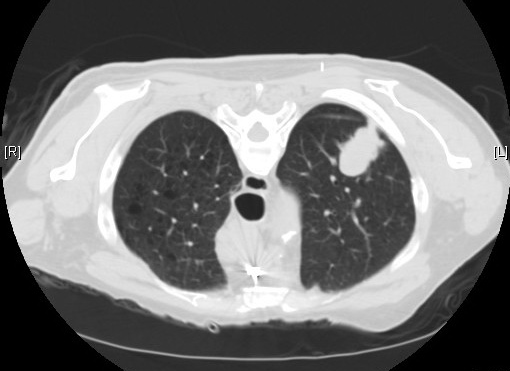Racial Disparities May Decrease with Life-Gained Approach to Lung Cancer Screening
, by DCEG Staff
The draft 2020 lung cancer screening guidelines by the United States Preventive Services Task Force (USPSTF) may increase racial/ethnic disparities in screening eligibility, according to findings published in the Journal of the National Cancer Institute on January 5, 2021.
In 2020, the USPSTF released draft recommendations for annual lung cancer screening for individuals aged 50 to 80 who have a history of heavy smoking (equivalent to at least one pack of cigarettes per day for 20 years or more) and who currently smoke or have quit within the last 15 years. Compared to current USPSTF recommendations, these draft recommendations expanded the age range and reduced the heavy smoking requirement, “partially [to] ameliorate racial disparities in screening eligibility”. In particular, prior eligibility criteria did not consider the higher risk of lung cancer and development of lung cancer at younger ages among African Americans, despite smoking less than whites.
Postdoctoral fellow Rebecca Landy, Ph.D., predoctoral fellow Corey Young, M.S., and senior investigator Hormuzd Katki, Ph.D., in the Biostatistics Branch, and colleagues, found that, although more minorities are indeed eligible by the draft USPSTF 2020 guidelines, the draft guidelines may inadvertently increase racial/ethnic disparities because they do not substantially increase minority eligibility compared to whites (78 percent versus 97 percent). The investigators proposed augmenting draft USPSTF criteria with people selected by the Life-Years From Screening-Computed Tomography (LYFS-CT) model, which calculates the gain in life expectancy for an individual if they undergo screening. They found that expanding USPSTF criteria to include people that highly benefit from screening, using the LYFS-CT model, could reduce disparities between whites and African Americans by selecting substantially more African Americans than whites (22 percent versus nine percent).
These findings highlight the need to develop lung cancer screening criteria that ensure those who stand to benefit most from screening will indeed be eligible for it, regardless of race/ethnicity. Use of the LYFS-CT model could improve the disparities in screening eligibility.
Reference
Landy R, et al. Using Prediction-Models to Reduce Persistent Racial/Ethnic Disparities in Draft 2020 USPSTF Lung-Cancer Screening Guidelines. J Natl Cancer Inst. 2020.
